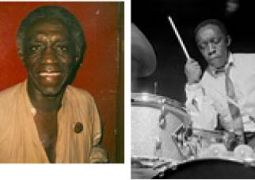The UN is the closest we have come to a world government. But...?
The United Nations or the UN as it is commonly called is probably the only organization in the world where every member is comfortable and uncomfortable at the same time. Small countries are in a way comfortable because at the UN their voices can be heard and respected. However, they are uncomfortable because they think sometimes their views are not taken seriously by the big countries notably the permanent members -
The UN could be described as a moving train with quarreling passengers, they are only held back from jumping out because the dangers of falling out are far worse than continuing the quarrel inside. It is maybe the only forum which can bring nations as polarized in political thought as
Arguably the UN is the most successful international organization in the history of humankind. Despite its shortcomings, I would not be exaggerating if I say it has in benefited more people worldwide than anyone could have imagined just a few years before its establishment when the world was reeling from the impotence of its predecessor the
However, of late many analysts have expressed their dissatisfaction with the way the UN is run and called for the need to reform the whole system or the Security Council in particular. Some have argued that the present configuration of the UN is a reflection of the world of sixty years ago and therefore, it has lost touch with the geopolitical realities of today. They say the victorious powers of the Second World War established and carved out the UN in a way that keeps them as 'super members'. The analysts further advanced their argument by saying that it is not fair that a full continent - Africa has no permanent seat in the Security Council whilst Europe has three -
Going by the above arguments one could clearly see that most advocates of reform in the Security Council are in favour of including more big countries as permanent members. It seems for them power and size are the most important determiners in qualifying for a permanent member seat. Even those fighting for Africa are thinking of the giants, that is,
I have a totally different view. I think we should either scrap the permanent member system altogether or should we choose to continue with it then small countries should be included instead of adding more big ones.
For the first option, we can simply increase Security Council membership from the current fifteen to twenty five equal members consisting of both small and big countries. Membership should be rotational and last for a period of one year. The members can then elect amongst themselves a 'Chairnation' to coordinate the affairs of the council. The membership increment would allow more representation and the reduction of membership time from two to one year would expedite the rotation process. When the UN adopts such a more democratic system of operation then it can start talking with authority about the need for tolerance, justice, and good governance. We must see in the UN the very values that it so often preaches. It has to show to the whole world that might is not right. No permanent member and consequently no veto power, we are a community of equals.
The second option is to continue with the permanent member system without the addition of more big countries. I believe adding more big countries will defeat the democratization process. The five permanent members are enough representation for the big powers. They include China the country with the largest population of any country on earth, Russian the world's largest country by land size, the United States the world's leading economic, technological, and military power, France a robust economic power and one of the world's chief former colonial powers, and Britain the home of the Industrial Revolution and builder of one of the modern world's largest imperial empires.
The small countries could offer a fair and rational judgment on key security issues since they have neither the interest nor the power to keep any one member down. Thus they can turn their weakness into a strong bargaining tool when dealing with sensitive issues. If
Another argument advanced in favour of the big powers is that they are responsible for the greater part of the UN’s budget. As a result they should have more say than their poorer counterparts. Any way I feel the UN is a union of states united by our common desire to be each others keeper. Under such a principle, size or wealth is not an advantage for outsmarting but an added responsibility to share with the less fortunate. I strongly believe that the UN is too noble an organization to be auctioned to the highest bidders. Moreover, if you take a closer look at world politics, you would recognize in most countries the very people who foot the bill are the least represented in government and the least cared for. All governments weak or strong depend to a large extent on the taxpayers' money but this has not given them any special privileges. In democracies the taxpayers are merely relegated to electors and demonstrators and in totalitarian regimes they fare even worse. Thus footing the UN bill must have nothing to do with who qualifies as a permanent member.
As an ardent supporter of the UN, I would really want all members to truly commit themselves to building a better world as they have promised to by joining the world body. Though some members are sincerely working towards world peace, others have many times violated binding resolutions in a flagrant display of contempt for the very organization they are claiming to be their own. This undue show of disrespect for UN resolutions must stop. The UN must take strong measures against any nation that violates a binding resolution. The step is for every member to have the will and grace to abide by UN decisions. The next step is for the UN to take tough measures against violators. Members which violate resolutions must be suspended and cut off completely from world trade. No member must trade with them in any form.
Such a punishment may never come to pass as no member would risk the consequences. It would serve more as prevention rather than a cure. The current sanctions have done little to change 'rebel states' from their deviant behavior. Conflicts are being prolonged and lives continuing to be lost due to the continuous violations which have become the hallmark of some insincere UN members. Their reasons for behaving thus cannot be justified. I cannot understand how their wisdom rejecting UN decisions can outweigh the collective goodwill and judgments of the UN. Therefore, there is no excuse for defying the world.
Finally whether we agree to reform the UN or not there is no denying that it should take up a more assertive role in world affairs. The UN is the closest we have come to a world parliament or government; consequently we must make the maximum use of it in not only settling world conflicts but also in expediting efforts towards an actual world government. I cannot wait for the day when barriers will disappear as did the Berlin Wall in 1989, and people of all colors and orientation started calling themselves the citizens of the United Nations.



